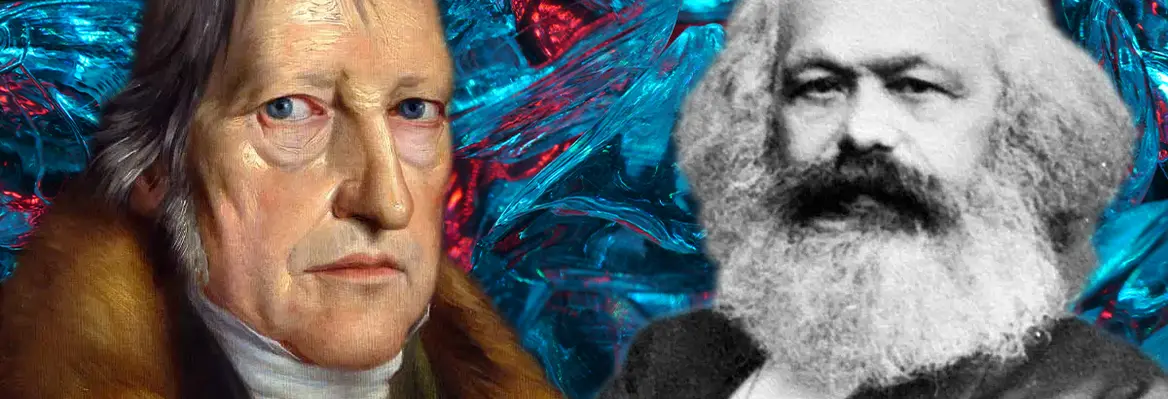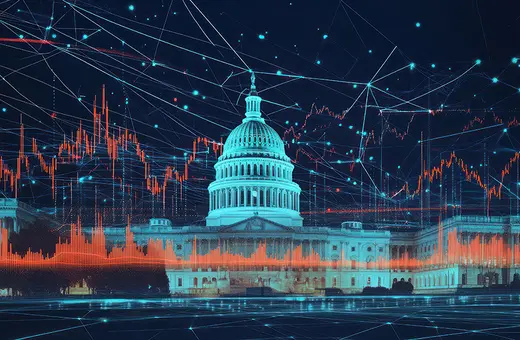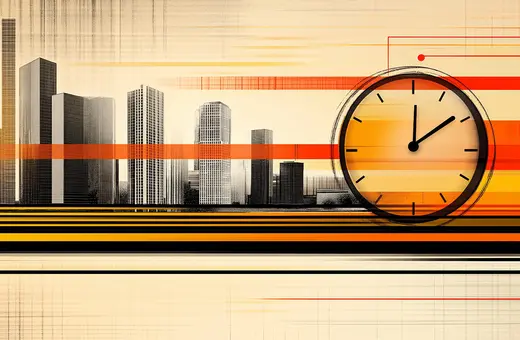Marx thought he turned Hegel on his head, ditching ideology for class struggle as the driver of human history. But in writing off the state, war, and law, Marx missed something crucial. Yale philosopher Jacob McNulty argues for reviving a tougher, more realist Hegel, in line with the realist school of international relations, one that sees history not just as a battle of classes, but of states.
Marx and Engels criticize Hegel for his idealist account of history as driven by the world spirit, a godlike rational force seeking self-knowledge. They advocate replacing it with a materialist account of history as the history of class struggle. Yet historical materialism is unconvincing in its treatment of the state, war, and law. To solve this problem, I recommend returning to the “realist” branch of Hegelian thought.
In their early writings, Marx and Engels embark on a series of polemics against Hegel and his school, defending the superiority of their historical materialist outlook to that of Hegel’s idealism. In these writings, Marx and Engels describe Hegel not just as mistaken but as having an inverted “topsy-turvy” view of the world and our place in it. This is the idea behind Marx’s statement that when he encountered Hegel, he found a philosopher who was standing on his head, and was therefore viewing the world upside down. Hegel would have to be placed back on his feet again if reality were to be seen aright. A more sophisticated statement of this idea is that Hegelians “reverse subject and predicate,” mistaking for the underlying substance what is in fact the superficial or accidental property inhering in it—and mistaking the substance for the property. However, this familiar critique overlooks important strengths in Hegel's approach to history.
___
While there is some truth in Marx and Engels’ critique of Hegel and his school, I think it neglects a more hard-nosed strand of Hegelianism, a strand later picked up by a school of thought not often thought of as Hegelian in any sense: the “realists” of international relations
___
Marx and Engels suspect Hegel and his school of drastically overestimating the role of ideology in human affairs, treating ideas like Christianity as the fundamental drivers of historical progress and change. By contrast, Marx and Engels themselves locate the true basis of history in the realm of economic production. The mode of production, the way in which a society’s members cooperate to produce what they consume, constitutes the basis of everything else in society: its legal and political system; its religious and philosophical outlook; its art; and so on. In their critique of Hegel and his school, Marx and Engels relish the opportunity to mock the backwardness of Germany, a nation they saw lagging behind England and France in politics and commerce. To the German, who still lives under an archaic and oppressive system of government with one foot in the feudal world, the only possibilities for self-expression are in the domain of thought. Hence, Germany’s greatest philosophers look on history as essentially a contest of ideas. To the man with a hammer, every problem looks like a nail.















Join the conversation